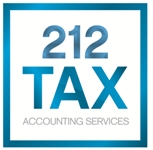Are you an author who has yet to profit from your work? Are you an aspiring artist who recently sold a painting to a collector? Do you spend time and money making handmade pottery that you distribute through local businesses? Depending on how much profit you earn and other factors, the Internal Revenue Service (IRS) may consider your side gig a business — and that will change your tax status.
Defining “Business”
If you’re a business owner, you plan to make a profit. However, you may have a loss if your business income does not exceed your expenses — expenses that are ordinary and necessary in the trade or business that you are conducting. To clarify, an ordinary expense is an expense that is common and accepted in the taxpayer’s trade or business, while a necessary expense is one that is appropriate for the business. The IRS allows business owners to deduct losses from other income, whether it is earned from a W-2 job and/or from another type of self-employment. But if your business is actually a hobby, then you can’t — and that has significant tax implications for many taxpayers.
Do You Make a Profit?
IRS guidelines limit your ability to take deductions if your business is actually a hobby. Because they are guidelines and not rules, you may have some flexibility when evaluating whether or not your business is actually a hobby. Although there are some exceptions, in general, the IRS considers your hobby a business if: it makes a profit during at least three of the last five years, including the current year, and at least two of the last seven years for activities that consist primarily of breeding, showing, training or racing horses. If your business has not earned a profit for three of the past five years, you may still have some options.
Keep in mind that the IRS is unlikely to reclassify your business as a hobby if you lost money for the past five years but you are able to demonstrate these losses were ordinary and necessary for conducting your business. If you have questions about whether or not your business losses put you at risk, 212 Tax can help.
Do You Keep Records?
The IRS loves it when you keep accurate records, and here is no exception. The IRS will consider your activity a business if you can demonstrate that you manage the activity in a professional manner. You can do this by maintaining a separate bank account and keeping accurate records of expenses and income.
Do You Have Fun?
Just because your enterprise is fun doesn’t mean the IRS is likely to categorize it as a hobby — but it does mean you’ll have to work a little harder to prove its legitimacy as a business. For example, making quilts could be considered a fun recreational activity, whereas cleaning houses is not. The tax accountants at 212 Tax can help you determine whether or not you’re engaging in your activity for fun or for profit.
Are You an Expert?
Your customers expect you to know what you’re talking about, and so does the IRS. To be considered a legitimate business, you must demonstrate a thorough knowledge of your subject through hands-on experience, extensive study, and/or consulting with other noted experts. The more knowledge you have, the more likely the IRS is to count your enterprise as a business.
Schedule a Consultation With 212 Tax
For more information on the tax treatment of hobbies and businesses, schedule a consultation with 212 Tax.
Request a Consultation
We are able to work with your unique schedule including after-hour appointments, most weeknights, and weekends.
Call to action
Build Growth Opportunities with Extensive Business Financial Services
We serve clients in a range of industries, including hospitality, nightlife, real estate, legal, and medical.


